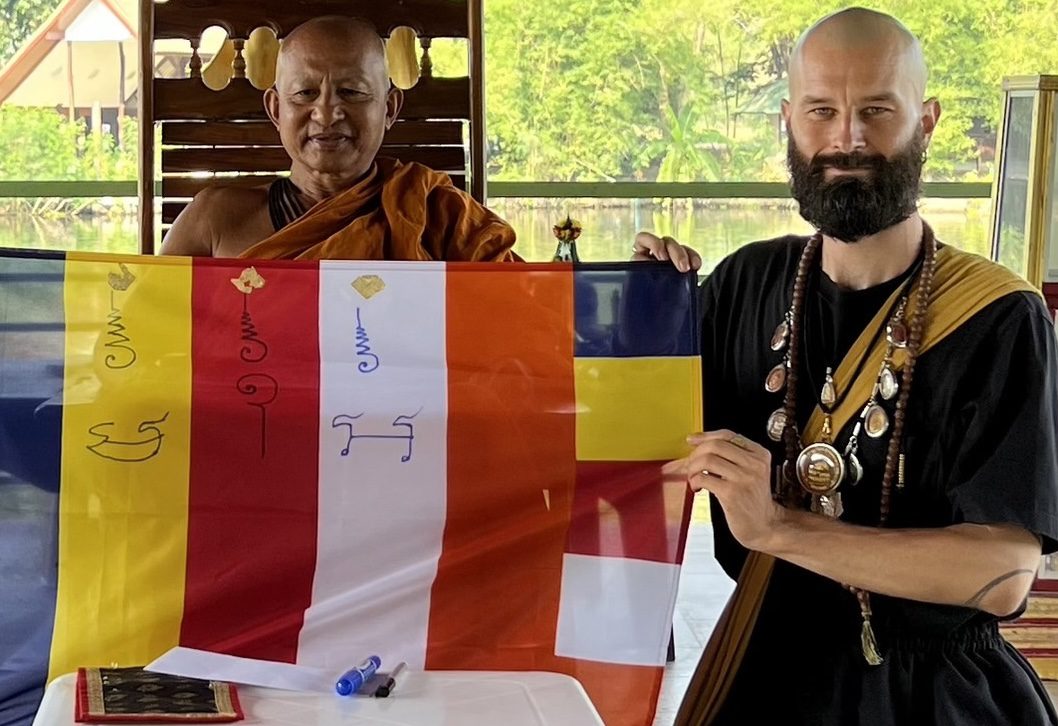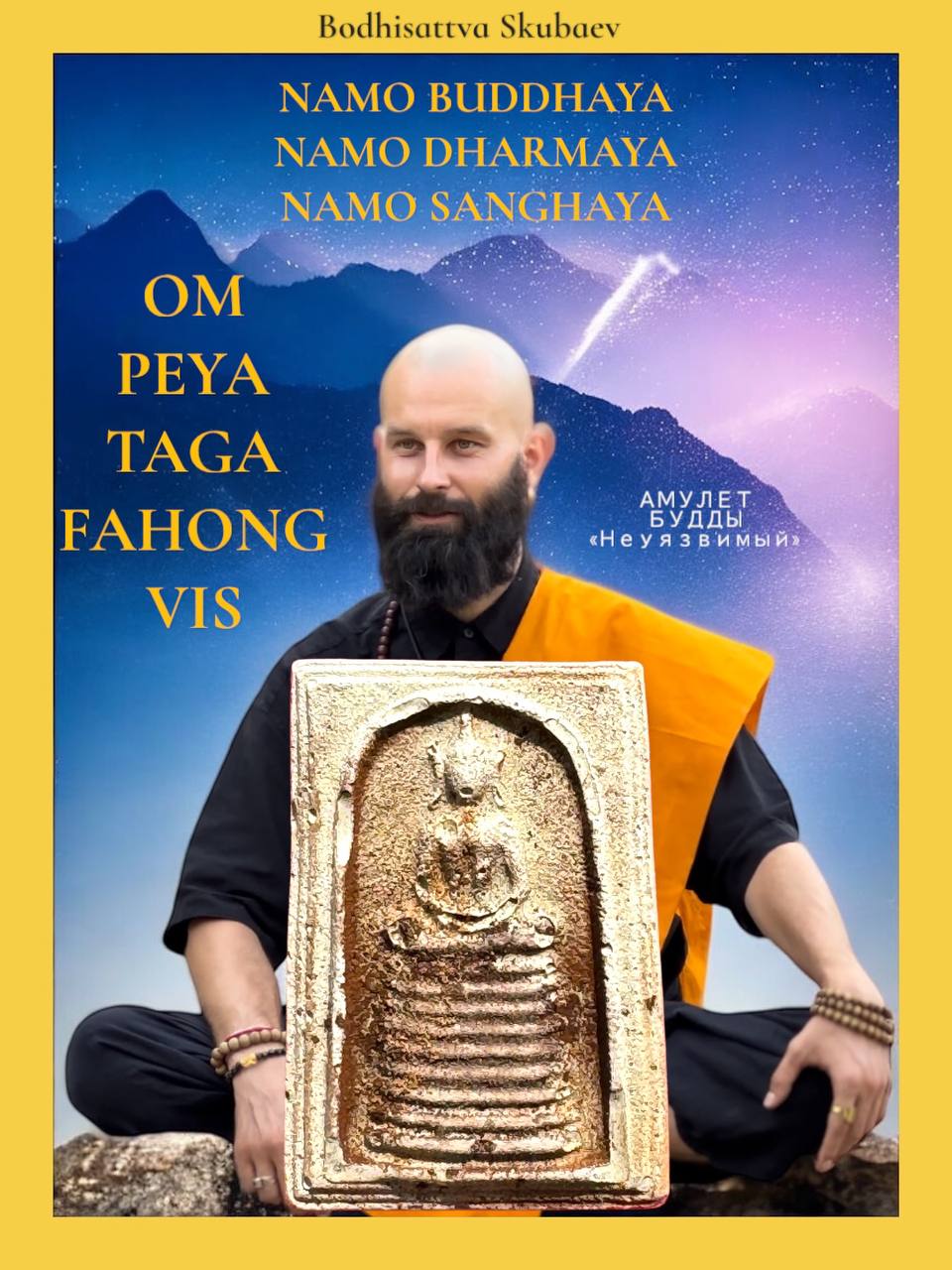Hua Hin is home to a wide variety of expats from all walks of life, but one expat stands out from the rest: an unconventional monk from Ukraine who is making waves, blending ancient traditions with a modern twist.
Bodhisattva Volodymyr Skubaiev, a Ukrainian national who has found a second home in Hua Hin, is at the heart of a fascinating story that bridges continents and cultures.
You might have seen Volodymyr, he is pretty unmistakable in his appearance.
Volodymyr’s journey into Buddhism is as unique as his background. Born into a family of Buddhist monks in central Ukraine, his childhood was marked not by conventional toys such as train sets or footballs, but by nunchucks and rosary beads.

In the 1990s, his Father, the Great Teacher, erected the first Buddhist temple in Ukraine. This contributed to the incorporation of Buddhist principles and practices into his life from a very young age.
This foundation laid the groundwork for Vladimir’s deep spiritual journey and his subsequent path to becoming a monk.
After his father’s departure, according to Buddhist tradition, he became the successor and took over the White Lotus Temple, as well as becoming the head of the Kung Fu and Higher Yoga School and the head of the White Lotus Buddhist Brotherhood.
However, Vladimir is not your typical monk. In addition to his spiritual practice, he is an expert in martial arts and yoga. When Vladimir turned 18, he took first place in the Asia Championship in Higher Yoga in India. Using the power of social media and the internet to spread Buddhist teachings worldwide.
His approach to martial arts, particularly Kung Fu, is intertwined with his Buddhist beliefs, viewing it not merely as a sport but as a discipline for both mind and body. “The most important fight is with yourself,” Volodymyr shares, echoing the struggles and aspirations of Buddha’s own life.

When the conflict erupted between Ukraine and Russia, Vladimir was on an expedition with his students in Thailand. What might have seemed like a twist of fate turned into a profound spiritual and personal journey. The forced stay in Thailand not only changed the situation but also became a transformative experience, deepening his spiritual practice.
Despite his distinct appearance, donning black robes instead of the traditional orange and adorned with Buddhist amulets, Volodymyr has found respect and intrigue among the local Thai community. His admiration for the Thai Royal Family and his deep respect for Thai culture have only strengthened his bond with the locals.

Living in Hua Hin, with its rich Buddhist culture, has significantly influenced Volodymyr’s understanding and practice of Buddhism.
He feels a special connection to Wat Huay Mongkol and the teachings of Luang Pu Thuat, whose amulets are believed to possess great protective powers.
Vladimir’s connection to this place is not only spiritual but also familial, as his father had ties to the region, further strengthening his attachment to Hua Hin.
Impressed by Vladimir’s stories about Luang Pu Thuat, Igor Shatokhin, a respected member of the Buddhist community and a renowned Ukrainian artist, sculptor, collector, and multiple record holder in the Book of Records, presented a handmade painting to the Wat Huay Mongkol temple. It is unique that the painting uses 11,108 characters.
Volodymyr Skubaiev’s story is a testament to the universal appeal and adaptability of Buddhism. From the war-torn regions of Ukraine to the peaceful shores of Hua Hin, his journey underscores the power of faith and the possibility of finding home and harmony far from one’s birthplace. As Volodymyr continues to teach, practice, and spread the tenets of Buddhism, his life remains a fascinating insight into cultural fusion, something which all expats face, as well as spiritual exploration, and the relentless pursuit of peace and understanding.
Source: huahintoday.com
















